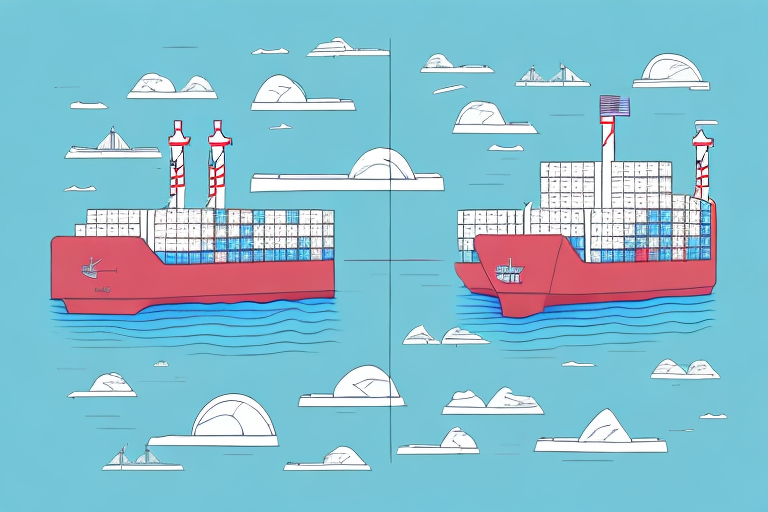How to Successfully Negotiate a Parcel Contract
Negotiating a parcel contract is a critical practice for any business that depends on shipping to deliver their products. Understanding the parcel industry, knowing the key players, and considering various factors before entering negotiations are essential steps for securing a favorable agreement. This comprehensive guide will walk you through the necessary steps to negotiate a successful parcel contract.
Understanding the Parcel Industry
Key Players
The parcel industry is multifaceted, involving several key players:
- Shippers: Businesses that need to send products to customers.
- Carriers: Service providers responsible for the transportation of goods.
- Freight Forwarders: Intermediaries that arrange the transport of goods on behalf of importers and exporters.
- Brokers: Specialists who help shippers find the most suitable carriers for their needs.
- Customs Brokers: Licensed professionals who assist in complying with customs regulations and clearing goods through customs.
Common Terminologies
Familiarity with industry-specific terms is vital for effective negotiation:
- Tracking Number: A unique identifier assigned to a package for tracking its delivery status.
- Dimensional Weight: A pricing technique which uses the volume of a package to calculate shipping costs.
- Accessorial Charges: Additional fees for services like residential delivery or inside delivery.
Preparing for Negotiation
Conducting a Thorough Analysis of Your Shipping Needs
Begin by assessing your shipping requirements:
- Identify typical package sizes and weights.
- Determine the frequency of your shipments.
- Evaluate expected turnaround times and delivery speeds.
- Pinpoint pain points in your current shipping process to find areas for improvement.
A comprehensive understanding of your shipping needs provides leverage during negotiations and ensures that you select a carrier that aligns with your business objectives.
Establishing Your Budget and Cost Expectations
Determine your financial parameters for parcel shipping:
- Analyze your current shipping rates and identify potential cost-saving areas.
- Research competitor rates to benchmark your expectations.
- Decide how much you are willing to invest in shipping services, balancing cost with quality.
Remember, the cheapest option may not always offer the best value. It's crucial to strike a balance between cost and the level of service provided.
Effective Communication Strategies
Clear and concise communication is the cornerstone of successful negotiations:
- Ensure full comprehension of all terms and conditions in the contract.
- Ask for clarifications whenever necessary to avoid misunderstandings.
- Maintain open lines of communication throughout the negotiation process to build trust and foster a positive relationship with potential carriers.
- Avoid last-minute changes to prevent confusion and potential conflicts.
Crafting and Managing Requests for Proposal (RFPs)
A well-structured Request for Proposal (RFP) is essential for attracting the right carriers:
- Clearly outline all your shipping requirements and expectations.
- Specify areas where you seek cost-saving solutions or additional value-added services.
- Include a detailed timeline for the RFP process, indicating submission deadlines and decision dates.
- Define your company's standards for communication and reporting during the contract period.
A detailed and clear RFP will help you identify carriers that best meet your business needs.
Evaluating and Selecting Carriers
Analyzing Carrier Proposals
When reviewing proposals from potential carriers, consider the following:
- Compare shipping rates and delivery times.
- Assess additional services offered, such as tracking capabilities and customer support.
- Evaluate the carrier’s reputation within the industry.
- Understand all contract terms to ensure there are no hidden fees or unfavorable conditions.
Negotiating Rates and Discounts
To secure better rates and discounts:
- Identify areas where cost savings can be achieved, such as bundling services or committing to a guaranteed volume.
- Leverage industry trends and pricing knowledge to negotiate effectively.
- Consider the length of the contract; longer contracts may yield better rates.
- Build a strong relationship with your carrier through regular communication and reliable payments.
Managing Your Parcel Contract and Carrier Relationships
Effective management of your parcel contract ensures ongoing success:
- Regularly review contract terms to ensure they continue to meet your business needs.
- Establish performance metrics such as delivery times, cost savings, and customer satisfaction to monitor carrier performance.
- Maintain open and documented communication with your carrier to address any issues promptly.
- Foster a positive relationship with your carrier to negotiate more favorable terms and receive better service.
Measuring and Evaluating Contract Performance
After finalizing the contract, continuously assess its performance:
- Monitor delivery times and ensure they meet your business standards.
- Track cost savings achieved through the negotiated rates.
- Gather customer feedback to evaluate satisfaction with delivery services.
- Address any performance gaps with your carrier and make necessary contract revisions.
Staying Up-to-Date with Industry Trends
Keeping abreast of industry developments is crucial for maintaining a competitive edge:
- Subscribe to industry publications and attend relevant conferences.
- Stay informed about advancements in shipping technologies and services.
- Ensure that your parcel contract is adaptable to changes in shipping requirements and industry trends.
By staying informed, you can make proactive adjustments to your shipping strategy and contracts, ensuring long-term success.
In conclusion, negotiating a parcel contract involves a thorough understanding of the industry, meticulous preparation, effective communication, and continuous management. By following these steps, you can secure a parcel contract that supports your business goals and enhances your shipping efficiency.




















